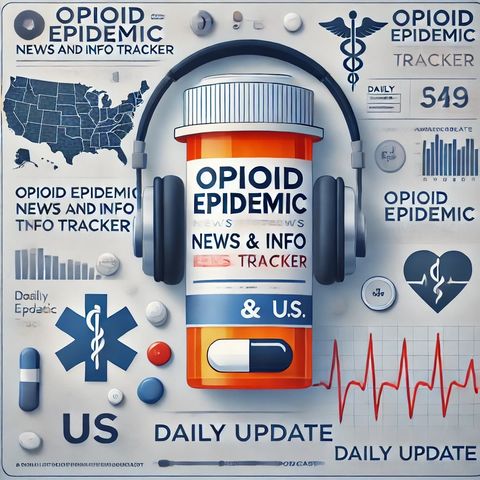"Combating the Opioid Crisis: Biden-Harris Administration's Comprehensive Approach"

Descarga y escucha en cualquier lugar
Descarga tus episodios favoritos y disfrútalos, ¡dondequiera que estés! Regístrate o inicia sesión ahora para acceder a la escucha sin conexión.
"Combating the Opioid Crisis: Biden-Harris Administration's Comprehensive Approach"
Esta transcripción es generada automáticamente. Ten en cuenta que no se garantiza una precisión absoluta.
Descripción
## Biden-Harris Administration Intensifies Efforts to Combat the Opioid Epidemic The Biden-Harris Administration has launched a multifaceted campaign to address the nation's opioid epidemic, marking a significant escalation in the...
mostra másThe Biden-Harris Administration has launched a multifaceted campaign to address the nation's opioid epidemic, marking a significant escalation in the fight against this devastating public health crisis.
### Unity Agenda and National Commitments
At the heart of this initiative is President Biden's Unity Agenda, which urges all Americans to come together to tackle the overdose epidemic. Recently, the Administration announced that over 250 organizations, including businesses, healthcare providers, schools, and faith groups, have made voluntary commitments to the White House Challenge to Save Lives from Overdose. This challenge aims to increase training on and access to life-saving opioid overdose reversal medications like naloxone.
### Expanding Access to Naloxone
A key strategy is to flood communities with naloxone, a drug that reverses opioid overdoses. For the first time in history, naloxone nasal sprays have been approved for over-the-counter use, making them available at grocery stores and pharmacies across the country. Federal agencies, such as the Department of Health and Human Services (HHS), have delivered nearly 10 million naloxone kits, preventing more than 600,000 overdose deaths.
### Historic Regulatory Changes
The Administration has made historic updates to federal regulations, lifting decades-long barriers to treatment for substance use disorder. This includes ending a 17-year moratorium on mobile methadone vans, allowing greater access to treatment in rural and underserved areas. States can now use Medicaid funds to provide healthcare services, including substance use treatment, to individuals in carceral settings.
### Interagency Collaboration
Federal agencies are working in tandem to expand access to life-saving measures. The Substance Abuse and Mental Health Services Administration (SAMHSA) has equipped all AED stations in its headquarters with naloxone and hosted annual naloxone training for staff. The Department of Homeland Security (DHS) has ensured that its law enforcement agencies and Federal Bureau of Prisons staff have access to opioid overdose reversal medications. The United States Postal Service (USPS) is set to make naloxone training available to all employees by December 2024.
### Community and Housing Initiatives
The Department of Housing and Urban Development (HUD), in collaboration with HHS and the White House Office of National Drug Control Policy (ONDCP), is working with housing providers to ensure public spaces have naloxone
Información
| Autor | QP-4 |
| Organización | William Corbin |
| Página web | - |
| Etiquetas |
Copyright 2024 - Spreaker Inc. an iHeartMedia Company
